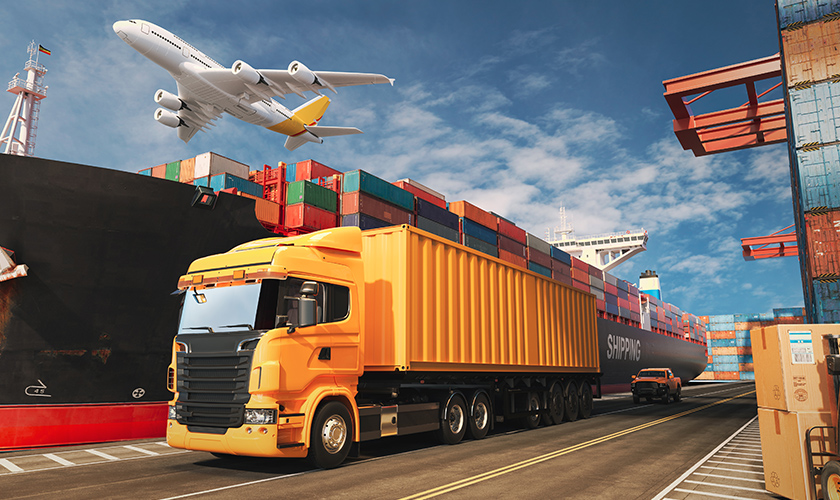
International Export and Import Laws and Regulations; Key to Safe Crossing of Global Trade Borders
You live in a world where anything can be moved from one point to another; from the coffee bean you drink in the morning to the mobile phone you hold in your hand. Behind this global exchange are precise and structured rules, without which global chaos would reign.
If you want to enter the world of international trade, or are just curious to know how exports and imports are done, this article explains in simple language everything you need to know.
What are exports and imports and why do they need regulation?
In the simplest definition, exporting means selling goods or services abroad, and importing means buying them from other countries. But it’s not that simple!
When a country exports or imports goods, economics, security, health and even political relations are involved. For this reason, laws and regulations are defined for these processes to:
Maintain public health and safety
Maintain fair competition in the market
Provide government revenue through taxes and tariffs
Prevent smuggling and violations
For example, a country may restrict the entry of certain goods for cultural, environmental or economic reasons. On the other hand, the exporting country must also be sure that its goods are legally exported and reach their destination.
The most important customs laws in international exports and imports
Customs are the official gates for goods to cross borders. They operate according to specific laws that may vary from country to country, but there are some general international principles:
Declaration of goods: Any goods imported or exported must be declared on official forms.
Tariff classification of goods: Goods are classified according to international standard codes (such as HS Code).
Document review: Customs examines the authenticity of documents such as bills of lading and invoices.
Physical inspection: In some cases, goods are physically inspected.
Also, some global organizations such as the World Customs Organization (WCO) have provided frameworks for countries to act more harmoniously in their customs interactions.
Familiarity with important documents in international trade (Incoterms, bills of lading, invoices, etc.)
Documents are the official language of international trade. Without them, no goods can be properly cleared, shipped, or received.
Some of the most important of these documents are:
Incoterms: A set of standard international terms that specify the duties of the seller and the buyer. Such as FOB, CIF, EXW, etc.
Bill of Lading: A document that specifies the means by which the goods were transported, to what destination, and for whom.
Commercial Invoice: An official document for the sale of goods that provides detailed details, including price, quantity, and specifications of the goods.
Certificate of Origin: A document that identifies the country of manufacture of the goods.
Transport insurance: In the event of an accident, this document helps to compensate for possible damages.
The absence or error in these documents can cause delays, fines, or even seizure of the goods.
The role of customs tariffs and taxes in imports and exports
Tariffs and taxes not only provide governments with revenue, but also play an important role in regulating the market. They can:
Support domestic production (for example, by increasing the tariff on imports of similar domestic goods)
Restrict imports of luxury goods
Affect the competitiveness of exported goods
A customs tariff is actually a percentage of the value of the goods that is paid as a tax. This rate may vary depending on the type of goods, the country of origin and destination, and international agreements.
For example, Iran has exemptions for certain goods with some countries that facilitate exports and imports.
Legal steps for exporting goods from Iran to other countries
If you plan to export goods from Iran abroad, you must go through the following steps:
Company registration or obtaining a business card: The first step for any official business activity.
Identifying the target market: Examining the needs, demands, and laws of the destination country.
Obtaining necessary permits: Depending on the type of goods, you may need permits from organizations such as the Ministry of Health or the Ministry of Justice.
Preparing and arranging documents: Invoice, bill of lading, certificate of origin, Incoterms, etc.
Declaring goods to customs: The goods are declared using the EPL system in Iran.
Inspection and clearance: After reviewing the documents, the goods are allowed to leave.
International transportation: Choosing the appropriate method (air, sea, land) depending on the type and destination of the goods.
Financial settlement: Usually carried out through systems such as LC or currency transfers.
Legal restrictions on importing goods into Iran
Importing goods into Iran, like many countries, is subject to certain restrictions and regulations. These restrictions are divided into three main categories:
Prohibited goods: These include goods that are not allowed to enter the country for religious, health, security or cultural reasons. Such as alcoholic beverages, drugs, certain publications and computer games, or goods that harm the national economy.
Permitted goods: These categories of goods are imported without the need for a special permit, but must comply with all customs, standard and tax requirements.
Conditional goods: A permit is required from the relevant authorities to import these types of goods. For example, importing medicine requires a permit from the Food and Drug Administration, or importing telecommunications equipment must be reviewed by the Ministry of Communications.
It is important to be aware of these lists, as importing prohibited goods or goods without the necessary permits can lead to confiscation of the goods, heavy fines, or even legal prosecution.



